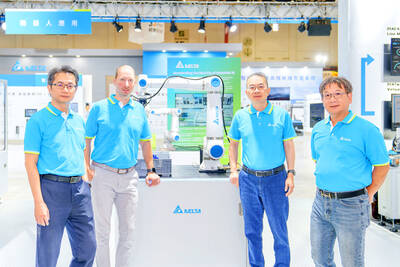Bharti Group chairman Sunil Mittal, the billionaire who controls India’s biggest mobile-phone operator, is looking to pump more than US$1 billion into a hotel chain founded by his son-in-law in London, people with knowledge of the matter said.
The money from Mittal would fund acquisitions by Sharan Pasricha’s Ennismore, a developer that owns the Gleneagles resort and Hoxton hotel chain, which is expanding in the US and Europe, said the people, who asked not to be identified, as the matter is private.
The injection would come from a Bharti unit that handles Mittal’s family wealth and would help Pasricha acquire and convert properties in trendy urban areas in US and European cities into hotels aimed at younger travelers.
Hoxton, known for its casual atmosphere and affordable rates, operates two hotels in the London neighborhoods of Shoreditch and Holborn, and one each in Amsterdam and Paris. The brand has 667 rooms across the three cities.
Ennismore said in an e-mail that it partners with Bharti Global, which makes investments for the Mittal family, and declined to comment further.
Pasricha, who is married to Mittal’s daughter Eiesha, ran a media startup, then a leather-goods factory and a private equity investment firm before getting into the hotel business.
Pasricha acquired the first Hoxton in Shoreditch, an East London neighborhood known for street art. The second in Holborn in 2014 was followed by a branch in Amsterdam in 2015 and in Paris last year.
Hoxton is developing hotels in New York City’s hip neighborhood of Williamsburg, Los Angeles and Portland, Oregon, with plans to start opening some of them this year, its Web site said.

SETBACK: Apple’s India iPhone push has been disrupted after Foxconn recalled hundreds of Chinese engineers, amid Beijing’s attempts to curb tech transfers Apple Inc assembly partner Hon Hai Precision Industry Co (鴻海精密), also known internationally as Foxconn Technology Group (富士康科技集團), has recalled about 300 Chinese engineers from a factory in India, the latest setback for the iPhone maker’s push to rapidly expand in the country. The extraction of Chinese workers from the factory of Yuzhan Technology (India) Private Ltd, a Hon Hai component unit, in southern Tamil Nadu state, is the second such move in a few months. The company has started flying in Taiwanese engineers to replace staff leaving, people familiar with the matter said, asking not to be named, as the

The prices of gasoline and diesel at domestic fuel stations are to rise NT$0.1 and NT$0.4 per liter this week respectively, after international crude oil prices rose last week, CPC Corp, Taiwan (台灣中油) and Formosa Petrochemical Corp (台塑石化) announced yesterday. Effective today, gasoline prices at CPC and Formosa stations are to rise to NT$27.3, NT$28.8 and NT$30.8 per liter for 92, 95 and 98-octane unleaded gasoline respectively, the companies said in separate statements. The price of premium diesel is to rise to NT$26.2 per liter at CPC stations and NT$26 at Formosa pumps, they said. The announcements came after international crude oil prices

STABLE DEMAND: Delta supplies US clients in the aerospace, defense and machinery segments, and expects second-half sales to be similar to the first half Delta Electronics Inc (台達電) expects its US automation business to remain steady in the second half, with no signs of weakening client demand. With demand from US clients remaining solid, its performance in the second half is expected to be similar to that of the first half, Andy Liu (劉佳容), general manager of the company’s industrial automation business group, said on the sidelines of the Taiwan Automation Intelligence and Robot Show in Taipei on Wednesday. The company earlier reported that revenue from its automation business grew 7 percent year-on-year to NT$27.22 billion (US$889.98 million) in the first half, accounting for 11 percent

A German company is putting used electric vehicle batteries to new use by stacking them into fridge-size units that homes and businesses can use to store their excess solar and wind energy. This week, the company Voltfang — which means “catching volts” — opened its first industrial site in Aachen, Germany, near the Belgian and Dutch borders. With about 100 staff, Voltfang says it is the biggest facility of its kind in Europe in the budding sector of refurbishing lithium-ion batteries. Its CEO David Oudsandji hopes it would help Europe’s biggest economy ween itself off fossil fuels and increasingly rely on climate-friendly renewables. While